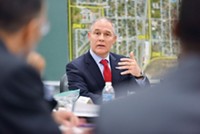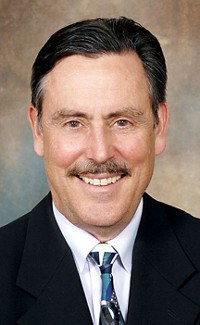Advertisement
Grab your lab coat. Let's get started
Welcome!
Welcome!
Create an account below to get 6 C&EN articles per month, receive newsletters and more - all free.
It seems this is your first time logging in online. Please enter the following information to continue.
As an ACS member you automatically get access to this site. All we need is few more details to create your reading experience.
Not you? Sign in with a different account.
Not you? Sign in with a different account.
ERROR 1
ERROR 1
ERROR 2
ERROR 2
ERROR 2
ERROR 2
ERROR 2
Password and Confirm password must match.
If you have an ACS member number, please enter it here so we can link this account to your membership. (optional)
ERROR 2
ACS values your privacy. By submitting your information, you are gaining access to C&EN and subscribing to our weekly newsletter. We use the information you provide to make your reading experience better, and we will never sell your data to third party members.
Chemical Regulation
Scandal-plagued U.S. EPA chief Scott Pruitt resigns
His efforts to weaken pollution controls expected to endure
by Cheryl Hogue
July 6, 2018

Dogged by scandal, the first EPA chief of the Trump Administration, Scott Pruitt, has resigned. But his work to loosen the agency’s regulatory grip on industry will likely advance.
Pruitt resigned effective July 6 amid more than a dozen federal investigations into alleged ethical lapses, his lavish spending of taxpayer money, and controversial policies he put in place during his roughly 16 months at EPA. Among them is a probe by congressional investigators into Pruitt’s change in the makeup of its outside science advisory groups. Pruitt dropped many academic researchers and replaced them with representatives from industry and state regulatory agencies.
In his resignation letter, Pruitt writes that “the unrelenting attacks on me personally, my family, are unprecedented and have taken a sizable toll on all of us.”
Leading the agency since February 2017, Pruitt acted steadily to implement President Donald J. Trump’s directive to slash “unnecessary and burdensome” regulations. Activists on the left, meanwhile, contend that this is undermining health and environmental protections and diminishing safety requirements for pesticides and commercial chemicals.
Pruitt’s departure, however, likely won’t mean a change from the deregulatory path that he set as long as Congress doesn’t intervene.
“The ideological fervor with which Pruitt pursued the destruction of environmental regulations and the agency itself live on in the Trump administration,” says Environmental Working Group President Ken Cook.

EPA’s second-in-command, Andrew Wheeler, takes the reins as interim agency head as of July 9, Trump said July 5 when he announced Pruitt’s resignation in a tweet. Wheeler is widely seen as a politically savvy Washington insider who effectively pushes the interests of the fossil-fuel industry.
Wheeler has worked in Washington for some two decades. He is a former lobbyist for coal company Murray Energy and was chief of staff for Sen. James Inhofe (R-Okla.), a leading denier of human-caused climate change. Wheeler also worked in EPA’s pesticides and chemicals program for four years under the administrations of former presidents George H.W. Bush and Bill Clinton. The Senate confirmed Wheeler to the job of EPA deputy administrator in April.
“We have full confidence in Acting Administrator Andrew Wheeler to carry President Trump’s important EPA reform agenda forward,” says Myron Ebell of the Competitive Enterprise Institute, a libertarian group that is skeptical that humans are causing climate change.
Wheeler has said he does not want to be the EPA chief, a desire that is in keeping with his behind-the-scenes experience.
Advertisement
Trump has yet to nominate Pruitt’s replacement. The process of Senate confirmation of a new EPA chief, which involves private meetings with lawmakers and public hearings, will take months. Getting a new agency administrator installed before the U.S. general election in November is highly unlikely.
“The next EPA administrator needs to be someone who will uphold independent science and commit wholeheartedly to the agency’s science-based mission of protecting public health and the environment,” says Ken Kimmell, president of the Union of Concerned Scientists. “Until then, Congress should conduct considerably more oversight because political appointees at the EPA are sidelining science and compromising the agency’s effectiveness.”





Join the conversation
Contact the reporter
Submit a Letter to the Editor for publication
Engage with us on Twitter